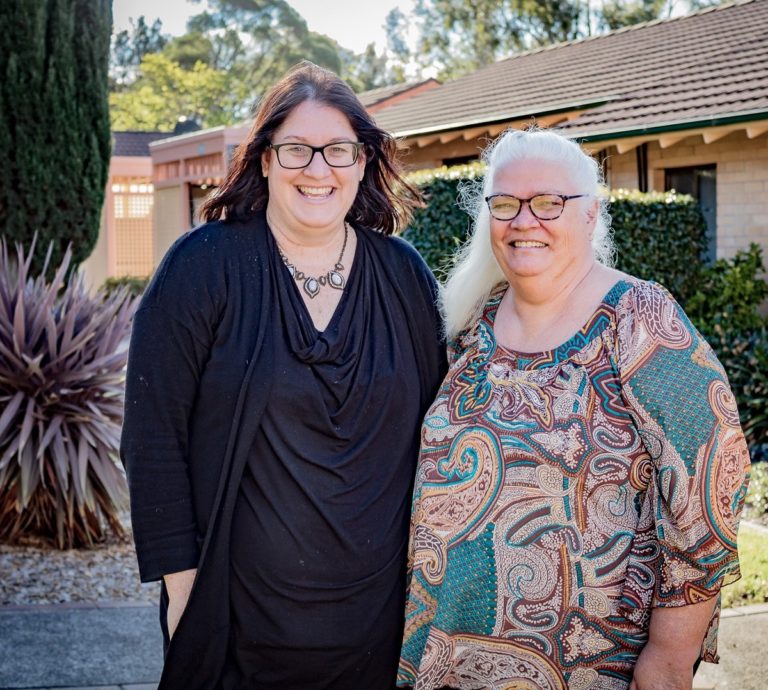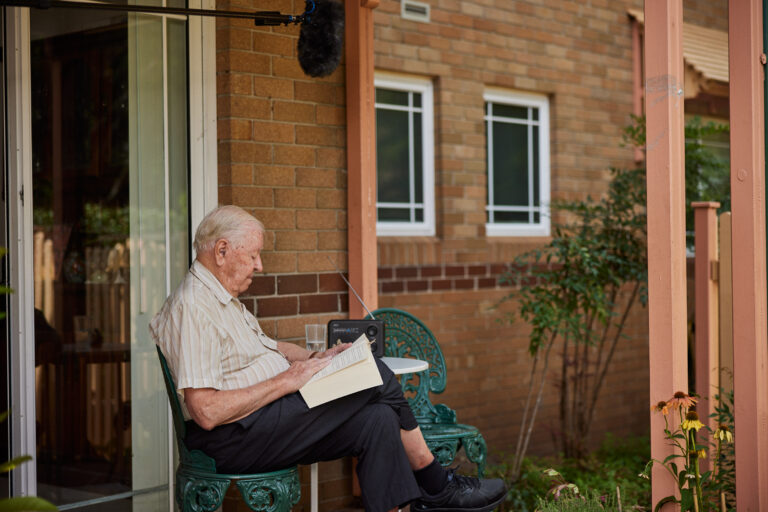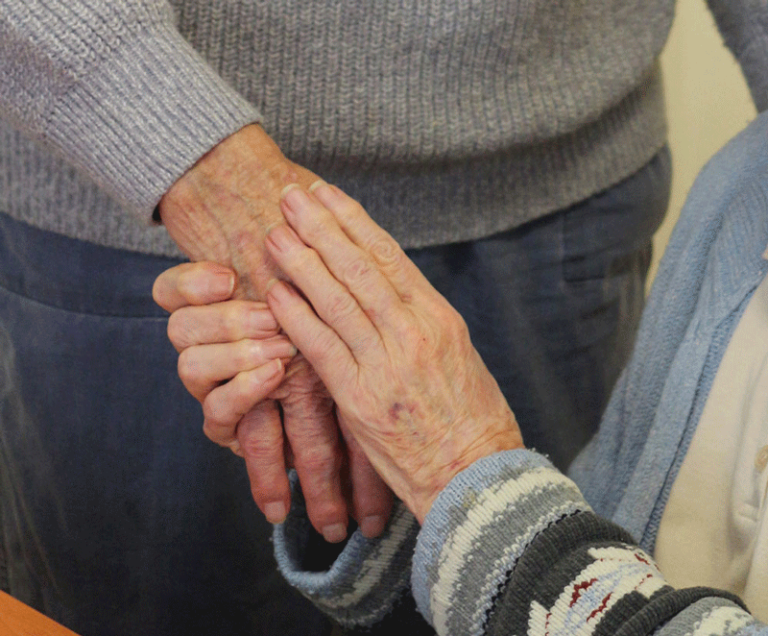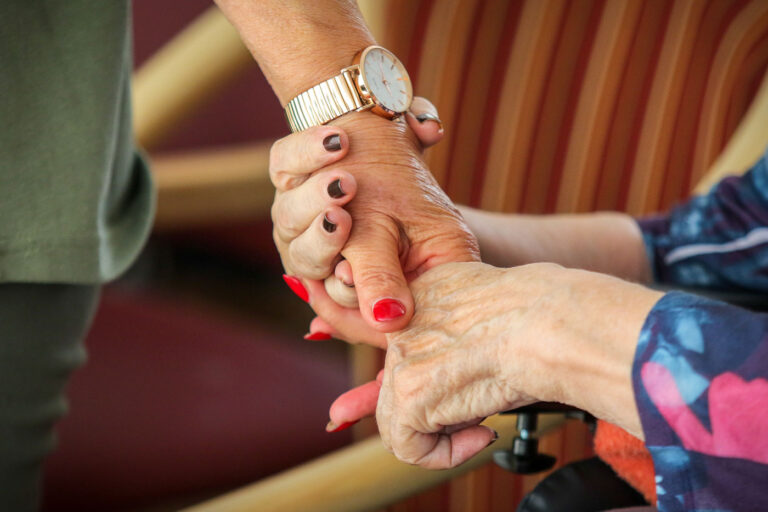10 ways to empower older adults
If you have an older person in your life, one of the most caring things you can do is help them feel empowered as they age.

Empowerment is essential at every stage of life, and it becomes even more important as we age. In Western societies, older adults are often overlooked or underestimated, even though they carry decades of life experience, resilience, and wisdom. In contrast, many Indigenous and Eastern cultures view ageing as something to be respected - elders are honoured as key decision-makers and keepers of cultural knowledge.
Ways to empower your loved one
Empowering older adults isn’t just about helping them stay independent, it’s about respecting their autonomy, valuing their contributions, and ensuring they feel heard, seen, and included. Whether you’re a loved one, carer, neighbour, or service provider, here are ten ways to support the older people in your life to stay empowered and live on their own terms.
1. Reframe ageing and challenge ageism
Unfortunately we live in a culture that doesn’t always recognise or value the contribution of older people. We can tend to ridicule, rather than celebrate, getting older, and we may even discount older people’s abilities, let alone acknowledge their contribution to society. One of the key ways to empower older people is to reduce ageism, which is defined as discrimination against older people due to negative and inaccurate stereotypes.
Instead of seeing everything an older person can’t do, try seeing how much wisdom and insight they have. Try to see the beauty in slowing down in your later years and honour the gifts that come with age and experience. In doing so, the older people in your life might just change their perspective too.
Ways to reframe ageing:
- Celebrate birthdays and milestones with enthusiasm.
- Acknowledge life experience and insights, especially in storytelling and advice-giving.
- Speak positively about growing older. For example, highlight what someone has gained with age, such as patience, perspective or deeper relationships.
- Call out ageist comments or jokes when you hear them.
2. Involve older people in decision-making
Allowing people to make choices about their life is a basic human right, and it’s something that is often denied by well-meaning family members and professionals under the guise of protection. But if we want to be empowering, we must ensure that older people continue to enjoy the same life choices as everybody else and avoid lumping them into a homogenous group simply due to age.
No one wants to feel their life is not within their control, which is no less true for older people. Include them in decision making, whether it’s something big like making changes to their living situation or something small like choosing social activities. Regardless of where someone is at in their life, they still need and deserve choice, even if it’s just deciding what to wear or eat.
And if it is a bigger decision, keep in mind that older adults who need help are often concerned about losing their independence. Involving them in the decision-making process and starting slowly with small changes will help them feel more empowered.
Ways to support agency:
- Ask questions and genuinely listen.
- Involve them in planning around healthcare, living arrangements or finances.
- Offer options instead of assuming: “Would you like help with your shopping this week, or would you prefer to go together?”
- If their cognitive capacity is changing, find ways to preserve choice within safe boundaries.
3. Encourage the setting of boundaries
It’s empowering to have control over how we’re treated, what we allow, and what we don’t. This is no different for older people, in fact, it’s more crucial as others may begin overstepping boundaries unintentionally.
Examples of boundary support:
- Respect physical and emotional space.
- Don’t assume you can speak for them unless invited to.
- Support them in speaking up to healthcare workers, family or others.
- Encourage phrases like “I prefer not to…” or “Please don’t call me that.”
4. Create and support daily routines
As we age, physical changes or major life transitions (like retirement or the death of a partner) can make the days feel uncertain or unstructured. A gentle routine can provide a sense of comfort, rhythm and control.
Empowering routines might include:
- Morning tea and newspaper reading.
- A daily walk or stretch.
- Weekly community meetups, hobby groups, or market visits.
- Scheduled check-ins with family or carers.
5. Promote goal-setting (no matter how small)
Achieving goals - even small ones - is a powerful confidence booster. Supporting someone to pursue their interests, revisit old hobbies or even try something new helps maintain a sense of purpose.
Ideas for achievable goals:
- Learning to use a smartphone to video call the grandkids.
- Reading a new book each month.
- Planting a small herb garden.
- Attending a community class or event.
Discover what ageing in place means and how it can benefit you

6. Stay socially connected
Loneliness and isolation are major challenges for older people, especially after life changes such as retirement, illness, or bereavement. Supporting social connection isn’t just about chatting - it’s about being seen, feeling relevant, and staying engaged.
Ways to promote connection:
- Help them find local hobby or community groups.
- Encourage visits to local cafes, libraries, or RSL clubs.
- Support technology use for video calls or social media (when welcomed).
- Consider a move to a retirement village with an active community calendar.
7. Encourage physical activity in any form
Movement is empowering. Whether it’s gentle chair yoga, a tai chi class, or pottering in the garden, staying active helps maintain independence and boosts mood, strength, and confidence.
Tips for staying active:
- Modify favourite activities instead of eliminating them.
- Use walking frames, grab bars, or walking companions if needed.
- Suggest accessible fitness groups or swimming classes.
- Help with transport or research local seniors' exercise programs.
8. Use respectful and empowering language
Language can either reinforce dignity or diminish it. Avoid patronising phrases like “sweetie” or “the elderly” unless you know someone appreciates them. Use language that acknowledges adulthood and capability.
Empowering language tips:
- Refer to people by their name.
- Ask before offering physical help.
- Say “older person” or “older Australian” instead of “the elderly.”
- Use inclusive language - “we”, not “you people”.
9. Make practical support accessible (not paternalistic)
Sometimes well-meaning family or carers do things for an older person rather than with them. Offering assistance that enhances someone’s independence, rather than replacing it, is key to empowerment.
Suggestions:
- Provide tools like jar openers, assistive cutlery, or shower chairs.
- Offer transport options (bus cards, lifts) instead of driving without asking.
- Explore in-home support services for light domestic tasks or social outings.
- Research local services like IRT Home Care, which provides practical and respectful support.
10. Encourage lifelong learning and expression
Just because someone has retired doesn’t mean they stop growing. Encourage learning, creativity, and exploration, which can reignite passion and keep the brain sharp.
Ideas include:
- Online courses or tech literacy classes.
- Creative pursuits like writing, painting, knitting or photography.
- Mentoring younger people or sharing stories with grandchildren.
- Attending talks, live music or community education events.
Check out our article on the many benefits of home care services

IRT Aged Care Services
At IRT, we’ve been empowering older Australians to live their best lives for more than 50 years. We offer aged care centres and home care services in various locations across NSW, Qld and the ACT. As community providers with experienced and caring staff, you or your loved one will receive professional and compassionate care you can trust.
Find out moreHow to stay empowered as you age
While ageing is a normal and natural part of life, sometimes you may fear losing control over parts of their life, whether it’s your physical body or your autonomy to live in your own home. In fact, an American survey in 2014 found that 87% of Americans have at least one fear when they think about getting older and 23% feared losing mobility. There are many things you can do though to maintain a sense of power and keep living life on your terms.
1. Reframe getting older
One of the key ways to feel empowered is to reframe the way we feel about our own ageing.
Ageing is not a negative thing simply because Western culture tells us it is. It can actually be a beautiful time of slowing down, going more inward and letting go of the things that don't matter. Instead of seeing everything you can’t do, try seeing how much wisdom and insight you have.
Try to see the beauty in slowing down in your later years and honour the gifts that come with age and experience. Embrace this evolving older version of yourself, celebrate birthdays and try to value your contribution to society.
2. Stay involved in decision-making
Making choices about your life is a basic human right, and you deserve to enjoy the same life choices as everybody else. Remember to engage with well-meaning family members and professionals kindly and remind them of your right to decide.
Naturally, as you age, some decisions may become more difficult and require some assistance, but you should always be included in the decision-making process. Whether it’s something big like making changes to your living situation or something small like choosing social activities, you should be consulted. Regardless of what stage of life you are in, you still need and deserve choice, even if it’s just deciding what to wear or eat.
And if it is a bigger decision, keep in mind that it’s normal to feel concerned about losing your independence as you age. Staying involved in the decision-making process will help you feel more in control.
3. Set boundaries
One of the most empowering things you can do for yourself, at any age, is to set boundaries around your needs and desires. Boundaries are personal parameters or limits for what we need to feel safe physically, emotionally and mentally. As an older person, it becomes even more important as others may easily (and often unintentionally) step on our boundaries. For example, a medical professional might refer to you as “sweetie” in an attempt to be kind or nurturing, but perhaps it feels patronising or makes you feel uncomfortable. Setting a boundary and politely declining being addressed in this way can help you feel empowered and maintain a sense of sovereignty.
4. Keep a routine
Add some structure to your day and create a routine, even if it’s just scheduling meal times and gentle exercise, can make you feel more in control of your day (and your life). It can also help reduce uncertainty and give you some anchor points throughout the day so you know what’s coming next.
Set goals
Setting goals and achieving them is hugely empowering and a big confidence boost. Have a think about what you would like to achieve, whether it’s winning a game of lawn bowls or learning to cook a curry. You can get a satisfying sense of achievement in small ways too, even just from doing the washing! Perhaps you want to challenge yourself to read a certain number of books each week or learn to sing a new song. Whatever your goals, just make sure they are specific, meaningful and achievable so you can enjoy the sense of empowerment that comes from ticking them off your list.
5. Stay active
The more you can keep doing what you enjoy, the better you are likely to feel. Whenever possible, look for ways to make tasks and activities simpler and easier. Find practical solutions so that you can stay active. Reflective tape, grab bars and other assistive tools and devices in the home can be helpful if you have mobility issues.
As we age, things can become more difficult, but instead of immediately cancelling an activity, be creative and seek to make modifications. For example, maybe playing bowls is no longer physically possible, but heading along to the bowls club for the social aspect is still worthwhile. Or if driving isn’t an option, what about carpooling or taking the bus? You can find creative solutions to keep living an active and engaging life. Maintaining fulfilling activities also bolster your confidence levels and seeds feelings of independence.
6. Seek support
If you need help doing things, see what small modifications you can make to improve your daily life and remain independent. Regular in-home care can make a huge difference. Receiving assistance with daily tasks or home maintenance which allows you to stay in their home longer can actually help you feel in control. You can even use in-home care services to get assistance with maintaining hobbies and interests, such as going to the movies. It’s much more empowering to keep doing things with some level of assistance than to give things you love up entirely.
Final thoughts
Empowerment isn’t just a nice idea - it’s a human right. When older people are respected, included and supported in living how they choose, the benefits ripple out into their health, relationships and sense of purpose.
Small changes in attitude, language and approach can go a long way in restoring dignity and confidence in the people who raised us, taught us, or simply share our community.

IRT Home Care
Find out more about IRT Home Care and how we can assist you or your loved one to keep living independently at home. IRT has been providing home care services for more than 30 years, offering support to older Australians in NSW, Qld and the ACT.
Find out moreYou may also like
8 ways retirement villages can support healthy ageing
Staying healthy in retirement isn’t just about exercising and eating well - it’s also about maintaining connections, learning new skills, keeping the mind active and…
Art as therapy in aged care: what you need to know
Here we explore the role of art as therapy in residential aged care, particularly for those living with dementia.


